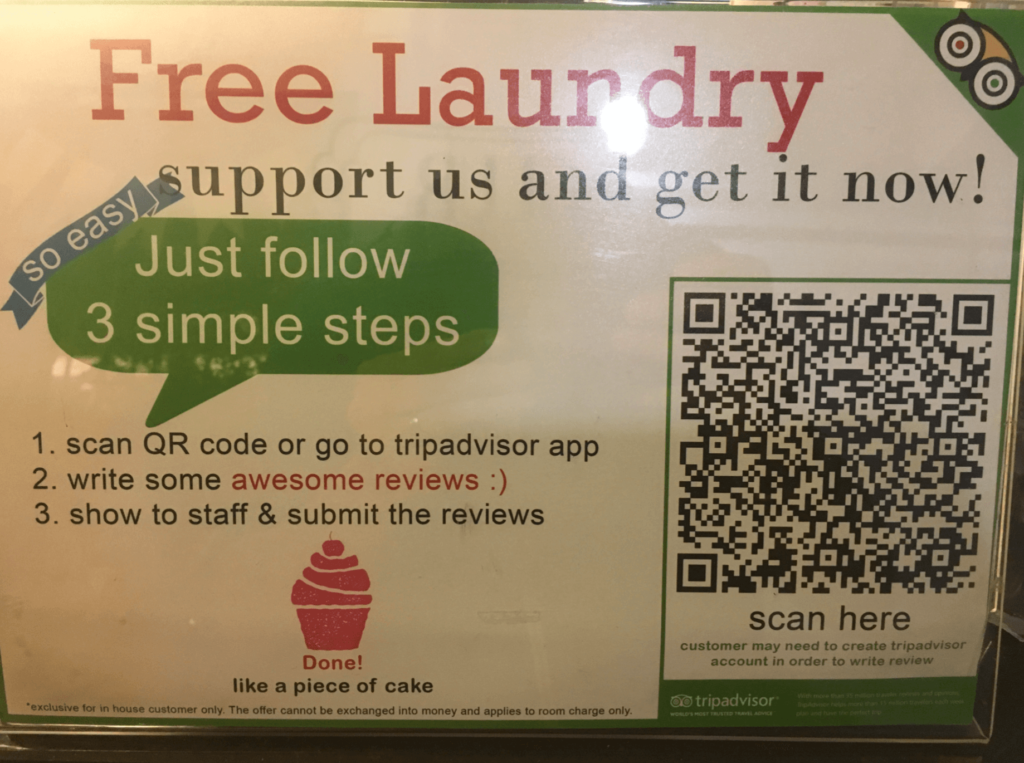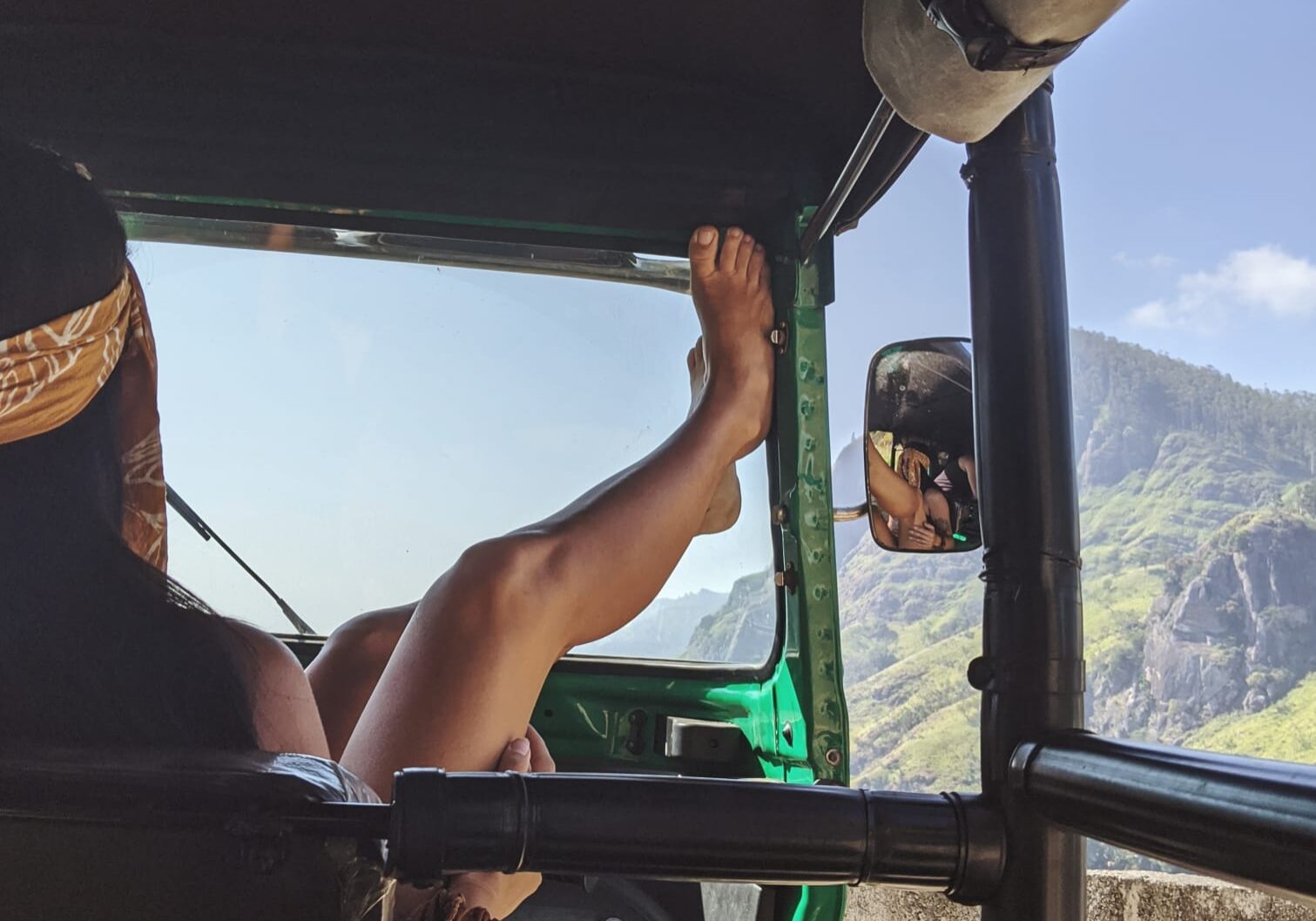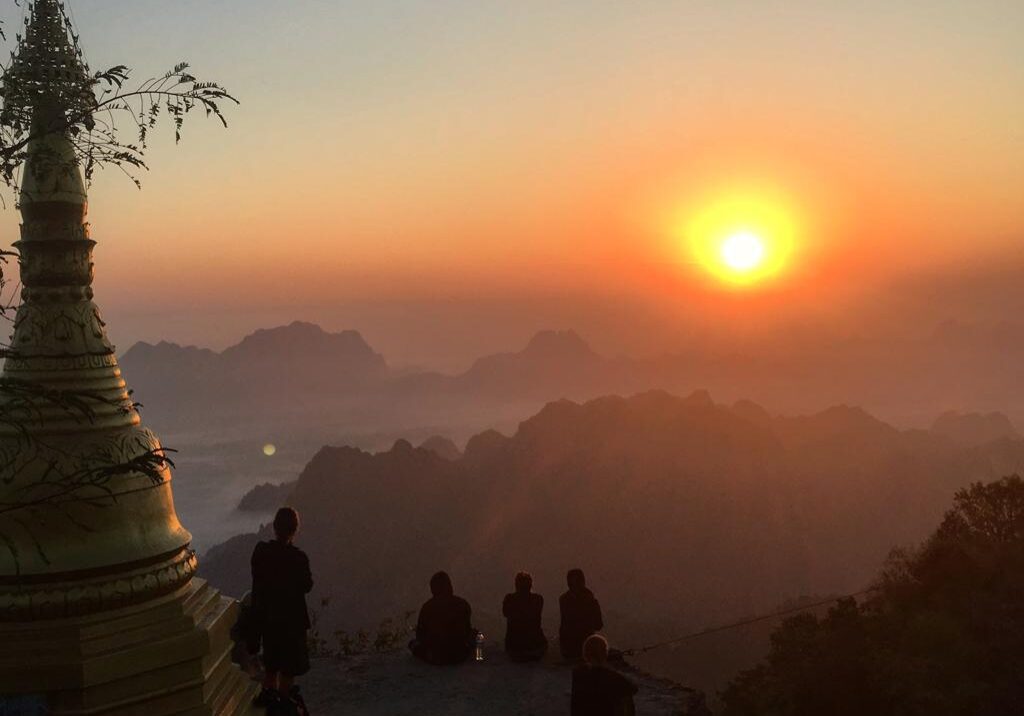Booking accommodation has never been easier for travelers.
Popular travel and booking apps like Bookings.com and TripAdvisor add a new layer of convenience for travelers on the go.
The sites thrive on a user-review system where guests rate and share their experiences with future guests.
This insight gives travelers the ability to make educated decisions about hotels prior to booking.
But while traveling around Southeast Asia, I couldn't help but wonder, why the reviews were so far off the mark.
That's when I started to notice the bribes in the form of freebies.
The review-bribe system
I first became aware of the review-bribe system at a crappy hostel in Vientiane, Laos.
I'd booked the place for two reasons: it was cheap, and it had incredible reviews; there was also a lot of praise about the owner. Win-win, I thought.
Turned out the place was a dump and the owner was a narcissist.
I was sitting at a table with two other travelers when the owner approached us and offered us a free beer if he could write himself a review on our phones.
That's right. He even wanted to write them himself.
I declined. The others grabbed the beer and handed over their phones.
That was it. A simple exchange, almost seemingly harmless.
I watched as the owner bribed every guest in the area. In 20 minutes he must have collected 10 fake reviews.
Everyone who got duped was now duping the next batch of travelers. We were firmly in the cycle.
The review-bribe system tactics
It's not just sneaky beers used to bribe travelers.
Some hotels are using even legitimizing their bribery tactics by using signs with reputable logos.
In Bangkok, I pulled into a hotel and was slapped in the face with the sign below. It rewards "awesome reviews" with free laundry. They carefully include "show to staff" to ensure the reviews are positive.
At 40 baht a kilogram, laundry can add up for budget travelers. So a few kilos of dirty clothes for one dirty review, is a tempting proposition to a traveler.
And – go figure – the hostel was garbage, but its amazing reviews had sold me like a true sucker - fake reviews written from bribing broke backpackers.
Why does the review-bribe system work?
A lot of travelers in Southeast Asia are young and on a budget. They can easily be taken advantage of, and perhaps don't even care.
I reached out to TripAdvisor to find out what they were doing to keep the integrity of the review system.
“We do not allow businesses to offer incentives in exchange for reviews, such as offering a free meal in exchange for a 5 bubble rating review. Where we find evidence of such activity, we do take action to remove the reviews in question in order to protect the integrity of our site and we may penalize the business involved,” a TripAdvisor spokesperson said.
And they called on more travelers to expose the dodgy practice.
“We encourage our community to let us know if they feel something is amiss so that we can investigate. Nothing is more important than the authenticity of our reviews and we have a dedicated team whose job it is to investigate such cases.”
What can you do to stop fake reviews
1. Report unethical review practices to the website being targeted
2. Write your own review informing others about the fake reviews
3. Spread awareness and let others know this is wide-spread in Asia
All I know is I’ll never trust another positive hotel review again, but I’ll keep a close eye on the bad ones.
No one likes to think about it, but traveling in Southeast Asia does have risks. By covering yourself with the right travel insurance, you can enjoy the world without worries.
I recommend World Nomads as my favorite travel insurance provider.









